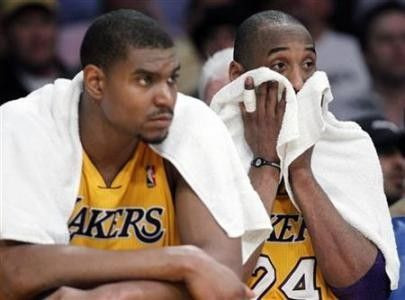NBA Cancels November Games with No Deal Struck

The National Basketball (NBA) canceled another two weeks of the season on Friday and conceded it was now too late to save the entire 82-game season even if owners and players reached an agreement to end to their bitter labor dispute.
After a third straight day of talks between the feuding parties ended in New York without an agreement, NBA Commissioner David Stern, who had already scrapped the pre-season and the first two weeks of the regular season, announced that more games had been lost to the dispute.
Our games are canceled through the end of the month of November, he told a news conference.
It's not practical, possible or prudent to have a full season now.
We held out that joint hope together but, in light of the breakdown of talks, there will not be a full NBA season under any circumstances.
Some progress was made by the two sides on salary cap issues over the previous two days of negotiations at a Manhattan hotel but the division of basketball-related income once again proved to be the main stumbling block.
The players had offered to reduce their share from 57 to 53 percent, and lowered that to 52.5 percent last week. On Friday, they said they could drop to 52 but that was not enough for the owners who had formally proposed a 50-50 split.
Today wasn't the day to try and close this out, NBA Players Association president Derek Fisher, who plays for the Los Angeles Lakers, told reporters in the hotel lobby.
Billy Hunter, the executive director of the players' union, said: We made a lot of concessions but this time, unfortunately, it's not enough.
Any chance of a deal being struck appeared very distant last week after three days of marathon talks in New York with a federal mediator had ended in bitter disagreement.
However, negotiations on a new collective bargaining agreement picked up steam after reports earlier this week suggested the league was ready to axe two more weeks from the schedule.
THORNY ISSUE
The owners and players initially focused on the structure of the salary cap system in marathon talks on Wednesday and Thursday before switching to the thorny issue of basketball-related income on Friday.
Until this afternoon, we've had a pretty good several days of give-and-take, Stern said. A lot of things were re-affirmed, a lot of concessions went back and forth. We made some major progress on length of contract.
And then we turned to the subject of how to divide basketball-related income (BRI). I summarized the positions ... and said that the NBA owners were willing to go to 50 percent on their percentage split of BRI, in effect a 50-50 split.
Billy Hunter said that he was not willing to go a penny below 52, that he had been getting many calls from agents and he closed up his book and walked out of the room. And that's where we are.
NBA owners contend the league lost $300 million last season with 22 of 30 teams in the red and initially demanded players cut their share of revenue -- which was 57 percent under the previous agreement -- to 47 percent along with a firm salary cap and shorter contracts.
The players subsequently offered to come down to 52.5 percent but the owners have refused to budge from their proposed 50-50 split.
Derek and I made it clear that we could not take the 50-50 deal to our membership, not with all the concessions that we granted, Hunter said. We said we got to have some dollars.
And so you get there, and then all of a sudden they say, `Well, we also have to have our number'. And you say, `Well wait a minute, you're not negotiating in good faith'.
No further meetings have been scheduled between two sides.
We share the frustrations of our fans, partners, and those who rely on our game for their livelihoods, NBA deputy commissioner Adam Silver said in a statement.
We remain committed to reaching an agreement that's fair for both the teams and the players and allows for the long-term growth of our game.
© Copyright Thomson Reuters 2024. All rights reserved.





















